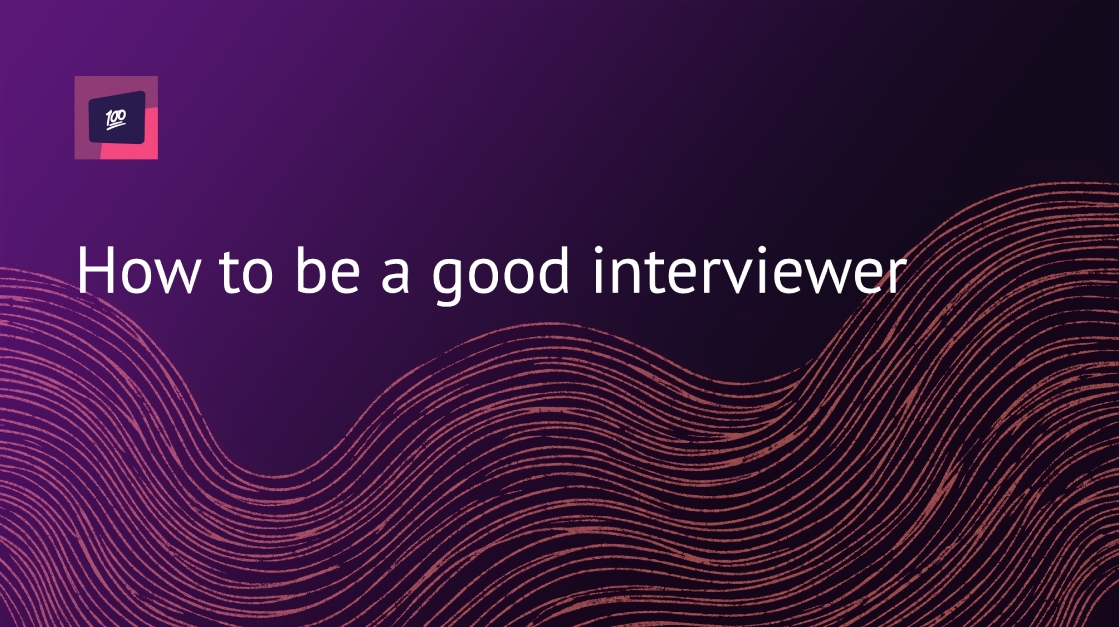How to be a good interviewer

15 Tips to Nail Your Skills as a Masterful Interviewer
Any organization is only as effective and successful as its people are. It only makes sense, then, that recruiting and hiring the right people is one of the most critical activities that can occur. When the right candidates are found, they provide great value to a company.
the best candidates faster



Why, then, are so many recruiters and interviewers just mediocre in their skills? Probably because many have not gone through much training beyond college. And most assume that the onus for a successful interview lies with the candidate. Nothing could be further from the truth. Unless the interviewer is highly skilled, he will not get an authentic and full picture of a candidate.
Just what are these skills that a masterful interviewer possesses. Let’s unpack them.
Before the Interview – Narrowing the Field
- The Position Description: Whether you have written the job description or not, it specifies the education, background, and skills that the organization needs. A skilled interviewer will review this description carefully and even discuss it with the author, for clarification when needed. And every job description should refer to the organization’s mission or vision. This is only fair to a candidate who is reviewing it. Beyond that, a job description should be compelling and engaging, if it is to attract the best candidates.
- Understanding the Real Need: Interviewers will begin the employment process by reading through resumes and CV’s that have optimized for your specific opportunity. You are not looking for glowing presentations of themselves. You are looking for results that will bring value to your organization. If you understand the real need, you will know what to look for. Make a list of these things before you begin reviewing resumes/CV’s.
- Narrowing the Field: You may have an automated system that kicks out candidate documents with the right keywords. From here, you will need to review the documents carefully. Do not scrimp on this process. Look for experiences and actual results, as you finalize those candidates you plan to interview.
Preparation for the Interview
A lot of work goes into interview preparation, and a masterful interviewer understands this.
1. The interviewer develops a list of questions. These are not “canned” questions that are generic to all interviews. They are questions that relate to the position; they are questions that draw out personality characteristics that show a fit for the organizational “culture.” They are open-ended questions that allow the candidate to do most of the talking about his experiences, background and accomplishments.
2. Consulting with Current Employees in the Department/Team: A Rockstar interviewer understands that a candidate will be a part of a group. What do members of that group have to say about their needs? What questions do they want you to ask of the candidate? Should you schedule group interviews with your finalists?
3. Preparing the Candidate for the Interview Process: Giving the candidate a time and place is a given. But preparing that candidate must involve more than that. He should know what the process will involve – will the interview involve only you? Will there be a call-back for a second interview? Will there be a group interview on that date? Will there be a skills test? Most candidates do not submit their transcripts with their documents. Do you want to see if your candidate was able to get good grades in key coursework related to the position? If so, ask for that in advance.
4. Research is a Two-Way Street: A serious candidate will have researched your organization in order to sound informed. What research have you done on the candidate? You have a resume or a CV, and you can certainly glean a lot of information from it. But check out online sources too. Does the candidate have a website with a portfolio? Is he on LinkedIn? How about other social media platforms? These can provide insights into interests and activities outside a work environment.
The Masterful Interview
It’s time for the event. You have prepared. Your job is to greet your candidate, put him at ease as quickly as possible, and give the impression that you are glad he is there. Now, for the actual interview process.
1. An Interview Should be a Conversation, not an Interrogation: Nothing puts a candidate more ill at ease than to be bombarded with question after question. This is not an interview. A masterful interviewer asks open-ended questions and then becomes an avid listener. Initial questions should be “soft-ball” to put the candidate at ease. The tougher ones can come later, once the candidate has a good comfort level.
2. Skills Tests Should Be Confined to the Position: Generally, candidates for STEM positions will not be the best writers. In fact, during college, they may have gotten assistance from writing experts – peers, academic labs, etc. While positions in sales, HR, PR, and marketing may require excellent writing skills, others will not. Only administer skills tests that are most critical for the position.
3. Veer from Your Script: You have prepared a list of questions. There will be times when an answer will spark something that you will want to know more about. And sometimes these follow-ups will provide much more insights and information than the initial question. Asking follow-ups such as “why, how, or who” may be warranted. Also, asking questions such as “What do think were the biggest reasons for the success of that project?” or “Is there anything you would have done differently?” “What made that project the most fun?” “Were there any initial failures that you have to overcome? What did you do?” You never know where these side conversations may go, but they can provide lots of insights into personality, values, work ethic, etc. And a candidate that you may think is just average could easily turn into a superstar when allowed to speak freely and “off the cuff.”
4. Talk as Little as Possible: When an interviewer dominates the conversation, speaking about the company, its mission, the organizational structure, etc., he is not giving the candidate information that he does not already have. He has done his research, and you are probably not telling him anything he does not already know. If you do this, the interview ends without you knowing anything other than that candidate is willing to listen to you.
A good “rule of thumb” is a 90/10 split – you do 10% of the talking. The only time you may do more than 10% is if the candidate has questions to ask of you. And this usually comes at the end with a prompt from you. Chances are he has already formulated a list of questions.
Ending the Interview
The candidate needs to know what comes next. If he has “passed” this initial meeting, will there be a second interview, perhaps with potential peers or a higher-up? When can he expect to hear from you?
- Provide the Details of Follow-Up: This is respectful and shows that you have a genuine concern for their time and effort.
- Ensure Follow-Up No Matter What the Outcome: The candidate should never be left “hanging.” He should hear from you even if you are turning him down. And sending just an email is not sufficient. It needs to be a personal call.
- Provide a timeline for Follow-Up: Give the candidate at least an approximate date for when a decision will be made.
- Walk the Candidate Out: Again, this shows respect and appreciation for the time and effort that have gone into this candidate’s preparation.
In the End
Becoming a masterful interviewer is not a skill that is easily acquired. It’s far more than writing a compelling job description, screening responses, and choosing a few of the best candidates on paper for an interview. These tips should give you insights into what you are doing right and what could use improvement. Conduct some self-evaluation with them in mind.
the best candidates faster




